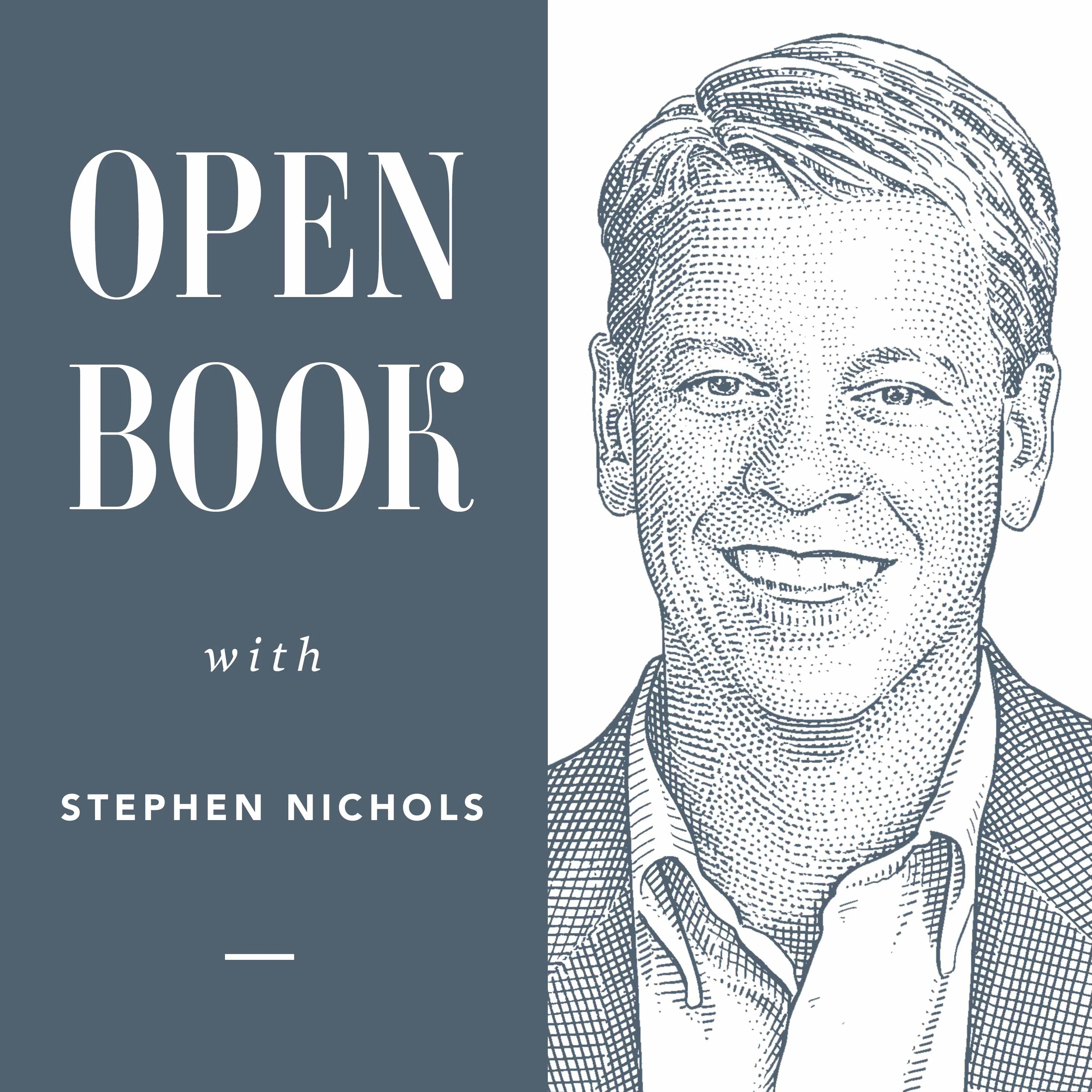Derek Thomas on Owen’s The Grace and Duty of Being Spiritually Minded

As a young man, Derek Thomas would meet with his mentor early in the morning to read the writings of John Owen. Today on the Open Book podcast, Stephen Nichols and Derek Thomas reflect on this intellectual giant of the 17th century.
Dr. Stephen Nichols: Well, welcome back to another episode of Open Book, and we are once again visiting with Dr. Derek Thomas on, I must say, a beautiful spring South Carolina day.
Dr. Derek Thomas: Yes, it’s in the eighties, I think, today.
Nichols: It’s beautiful out there.
Thomas: Yesterday it was fifty, so you’ve brought thirty degrees of temperature.
Nichols: We brought it up from Florida. I’m looking out the window of your office at a spire, and the only reason I know this—how high that spire is—is because I looked it up. It’s 180 feet tall, the spire of the church in which you preach.
Thomas: Yes.
Nichols: So, that’s First Pres of Columbia.
Thomas: Of Columbia.
Nichols: And we’re sitting here in your office, and we’re going to get to this book in a minute, but I have to—I’ve observed two things. One, I’m looking at some books here on your shelf. You’ve got a whole shelf of Iain Murray’s books, so that’s just wonderful to see—all of his biographies, all of his histories.
Thomas: Yes. I’m not sure if all of them are there.
Nichols: Doesn’t look like quite all of the things he’s written.
Thomas: No, I think there are some in the other office too.
Nichols: And then the other thing that’s sitting right next to me on an end table here is the four-volume Life of Wagner.
Thomas: Yes.
Nichols: So, we should talk about that sometime, but right now we’re going to talk about something else. So, you’re going to have to resist the temptation to talk about Wagner.
Thomas: I’ll try.
Nichols: You’ll try. Let’s talk about Owen. You handed me volume seven from The Works of John Owen, and we’re looking specifically at this section on the duties of being spiritual-minded and the duties of spiritual mindedness. Why Owen? Why this volume?
Thomas: Well, I was introduced to John Owen when I was still at university, and it was probably Sinclair Ferguson, who I first met in the early 1970s—he was a very young man and he was wearing those 1960s tweed jackets, which were very trendy then.
Nichols: Of course he was.
Thomas: And there is a picture of him in one of his books Add to Your Faith, a British publisher, and there’s a picture of him wearing very thick, dark-rimmed glasses and this tweed jacket.
Nichols: And that’s the Ferguson you first met.
Thomas: That’s the Ferguson I first met, and this picture haunts him and has threatened to make a comeback. But I purchased the sixteen volumes. There were originally twenty-four volumes of Owen’s works. It included seven volumes of his commentary on Hebrews, and the volume that was in Latin on biblical theology, which has since been translated and published separately. But when The Banner produced their series, there were sixteen volumes, and this is the original edition that they published.
And in 1975—so I’ve finished, I’ve graduated from college with a math degree, and I am at this point attending a very liberal Presbyterian seminary. Actually, it was the theology department of the university, and it was really quite awful. But I’m living with Geoff Thomas, the minister of Alfred Place Baptist Church.
So, I’ve got an apartment on the very top floor of his house. And he thought—and I’m a candidate for the ministry, and eventually I will immigrate to America to study at Reformed Seminary, get married fourteen days before leaving, which is another story—but Geoff thought it would be good to rise very early in the morning at about five and make some very strong coffee and read together—read out loud to each other—John Owen, volume seven, on the duty of spiritual mindedness. And I remember it with affection and a degree of torture. I’m not an early morning person.
Nichols: But you grew up on a farm.
Thomas: I know.
Nichols: Aren’t you supposed to be a morning person?
Thomas: Reading John Owen at five in the morning, it was very difficult for me. And my notes . . .
Nichols: A lot of margin notes.
Thomas: Lots of margin notes.
Nichols: There’s one in particular—can I draw your attention to? You write in the margin, “Weak.”
Thomas: I’m twenty-two.
Nichols: That explains it. There was that, yes.
Thomas: I think that the comment suggests that John Owen does not have a world-and-life view, so he would not be happy with the four volumes of Wagner sitting to our side here. And I think that’s what got me.
Nichols: I understand, yeah.
Thomas: But it is the arrogance of a twenty-two-year-old.
Nichols: They know everything; they know everything. Oh, to be twenty-two again. Well, we were talking about Bunyan last time. Owen and Bunyan had a close association and were very different. One was very much an academic-trained theologian.
Thomas: On the issue of books, there’s an interesting connection because it was John Owen who got Pilgrim’s Progress published.
Nichols: I don’t think people know this. Dig a little deeper there for us.
Thomas: Well, Bunyan was an uneducated Baptist minister.
Nichols: Not trained at all.
Thomas: Remember, we’re in the 1670s when the Baptist church was really just emerging, and snobby Anglicans did not think that they were authors. So, he had failed—and besides which, he had spent twelve years in prison.
Nichols: Yes.
Thomas: So, getting his book published was difficult, and John Owen talked to his publishers and convinced them that this ought to be published.
Nichols: I’m sure his publishers were very grateful for that.
Thomas: Now, John Owen is one of these remarkable people who, in the 1640s, is a chaplain in the Cromwellian side of the Civil War, and in the 1660s is hoi polloi’ing it with Charles II. How he accomplishes this is a total mystery to me.
Nichols: Because here’s Bunyan in jail; Owen believes the exact same things.
Thomas: Right, and he’s having a conversation with Charles II about Bunyan, and Charles is saying, the king is saying, “What in the world is he doing listening to this tinker and former prisoner of the crown forces?” And Owen apparently said something like that he would give all of his education if he could just simply preach one sermon like John Bunyan, and that’s very high praise indeed.
Nichols: Especially when you consider what Owen’s legacy is. You think of—you take those, just the volumes of Owen—you could spend a decade in those volumes just turning that material in your head over and over and over again. It’s just so rich. I think of his volume on the Holy Spirit, his work on the mortification of sin—there’s just so many riches.
Thomas: Yes, and The Glory of Christ, which was published posthumously—I think he was handed a copy of the manuscript just before he died—you can sense something of the glory in it. He was a trinitarian thinker, thought deeply about the interactions between the three persons of the Trinity and what we call perichoresis in Greek, or circumincession in Latin, and sometimes euphemistically call “the dance of the Trinity,” but the inter-penetration of each person in the other. And I think that Owen thought deeply about those issues.
I heard Sinclair Ferguson say by way of explanation, and maybe it was Jim Packer who said it too, that Owen thought in Latin and translated his thoughts into English, which is why his English sentences are so difficult sometimes.
Nichols: Yeah, the structure of them, that’s interesting. So, so far we’ve had all had all Brits. We’ve had Stott, Packer, Bunyan, Owen. Well, it’s been fun talking about John Owen, especially about volume seven, and we’ll allow Owen to have a little weakness in his understanding of spiritual mindedness maybe.
Thomas: That’s a twenty-two-year-old.
Nichols: And maybe Owen could use a little going to the opera every now and again.
Thomas: You know, he dressed in the most extraordinary way.
Nichols: I did not know that.
Thomas: He wore, like, Texan boots, leather boots up to the knees, wore these flamboyant hats and a wig.
Nichols: There was a little worldliness there.
Thomas: He was quite the fancy dresser.
Nichols: So, maybe he would’ve gone with you to see a Wagner opera—maybe.
Thomas: Maybe not.
Nichols: Maybe not. Alright, well thanks, and thanks for letting us look into this book of yours. I appreciate it. Thanks for letting us visit with you.
Thomas: Thank you.
Nichols: I’m Steve Nichols and you’ve been listening to Open Book, a podcast about the power of books and the people they have shaped. Help grow this podcast by sharing it with a friend or your family. Also, be sure to leave a review wherever you listen to the show. This is a great way to help others find the podcast. Please join us next week, as we’ll be back in the library for another episode of Open Book.
Recent Episodes
Augustus Nicodemus Lopes on Renewing Your Mind
June 27, 2024|Theologians
Augustus Nicodemus Lopes on Pearcey and Thaxton’s The Soul of Science
June 20, 2024|Apologetics
Augustus Nicodemus Lopes on Ridderbos’ Paul: An Outline of His Theology
June 13, 2024|Biblical Theology
Augustus Nicodemus Lopes on Lloyd-Jones’ Preachers and Preaching
June 6, 2024|Christian Classics
Augustus Nicodemus Lopes on Spurgeon’s Lectures to My Students
May 30, 2024|Christian Classics
Augustus Nicodemus Lopes on Packer’s Evangelism and the Sovereignty of God
May 23, 2024|Christian Classics

